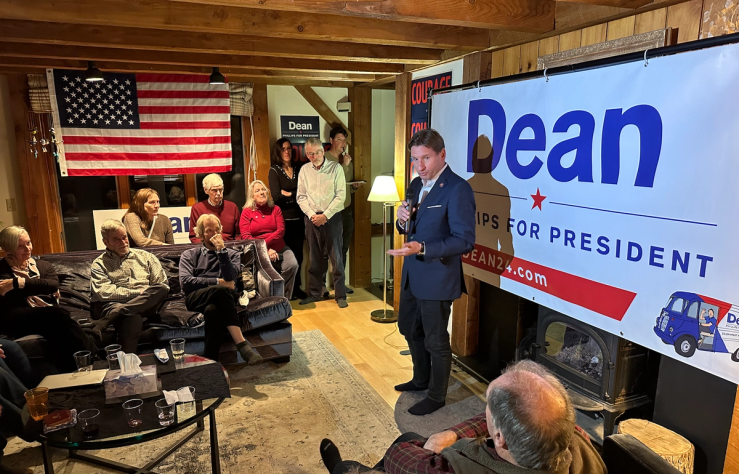The News
Minnesota Rep. Dean Phillips ended his presidential campaign on Wednesday, after winning just 8% of the vote in his home state primary.
“It is clear that Joe Biden is OUR candidate and OUR opportunity to demonstrate what type of country America is and intends to be,” Phillips wrote on X, asking supporters to “join me in mobilizing, energizing, and doing everything you can to help keep a man of decency and integrity in the White House.” He told a Minnesota radio host that he would not seek office again.
Phillips entered the race in late October, hoping to do well enough in New Hampshire’s primary that President Joe Biden re-thought his own plans to run, and that other Democrats joined the fray. Refusing to go after the president’s age, he made an electability pitch, warning that Biden’s unpopularity – which he considered unfair – would let Trump back into the White House.
“I’m the underdog, I’m the longshot, I’m at a massive disadvantage, and that’s why I love our country,” he told a crowd outside the state capitol in Concord in October.
In this article:
David’s view
Phillips remained the underdog. Democrats derided him for running, and organized a write-in effort that helped Biden win the primary without appearing on the New Hampshire ballot. He found a mix of genuine interest, skepticism from pro-Gaza ceasefire voters, and sometimes no crowds at all. Hoping to win at least 30% of the vote, Phillips ended up with just under 20%.
“Sometimes if you build it, they don’t come,” he quipped after no voters showed up to a Jan. 9 event.
Phillips, nervous about Biden’s bad polling, had urged better-known Democrats to run before he took the plunge. His experience showed why they hadn’t. Despite polls that showed half or more Democrats wanting an alternative to Biden, the party rallied around him.
The ink hadn’t dried on his Federal Election Commission paperwork before the South Carolina Democratic Party suggested that Phillips was undermining Black voters, by trying to win a mostly-white state (New Hampshire) where the primary wouldn’t assign any delegates. Phillips wound up with less than 2% of the South Carolina primary vote, then laid off key staff instead of keeping up a primary schedule in Michigan.
By the time he quit, Phillips wasn’t Biden’s chief challenger anymore. That role was played by the activists organizing an “uncommitted” vote in states (Michigan, Minnesota, Washington) where it was an option, to pressure the president into cutting off military aid to Israel and securing a ceasefire. Phillips, who didn’t significantly depart from Biden on the issue, was by that point issuing self-deprecating posts about how badly he was doing.
“Congratulations to Joe Biden, Uncommitted, Marianne Williamson, and Nikki Haley for demonstrating more appeal to Democratic Party loyalists than me,” Phillips wrote on Tuesday. He added that Jason Palmer, an entrepreneur who’d gotten nearly no media coverage, had out-performed him, too. Palmer won American Samoa’s caucuses with 51 votes. Biden won 40 votes. Phillips won zero.
Notable
In The New York Times, Nicholas Nehamas and Reid J. Epstein report on how quickly an “uncommitted” effort came together in Minnesota, winning nearly 20% of the vote and 11 delegates.


